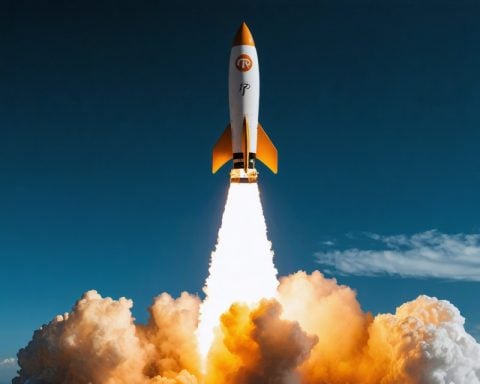- The era of unfettered globalization is ending, driven by the rise of economic nationalism worldwide.
- Multinational companies like Apple, Tesla, and Starbucks are adapting to a new landscape where national loyalty often outweighs market share.
- In China, local companies such as Huawei and BYD are gaining dominance over international brands in smartphones and electric vehicles.
- Mexican consumers increasingly favor local eateries over American chains, impacting brands like McDonald’s and Domino’s.
- European countries are prioritizing homegrown industries amidst transatlantic trade tensions, affecting sales of companies like Tesla in Germany.
- Companies must align their strategies with political realities, as neutrality is no longer an option in the fragmented global market.
The golden age of unfettered globalization is slipping through the fingers of multinational giants like Apple, Starbucks, and Tesla. As economic nationalism spreads worldwide, these companies confront new realities where national loyalty trumps market share.
This isn’t just an American phenomenon. Across the globe, countries entangled in President Trump’s tariff crosshairs respond with their own brands of patriotic consumerism. In China, a powerhouse of local sentiment, giants like Apple and Tesla are feeling the chill. Huawei and BYD are not just creeping up; they are capturing the moment, snaring decisive leads in smartphones and electric vehicles, respectively. Starbucks, once a symbol of Western lifestyle, now finds itself eclipsed by Luckin Coffee with its rapid service and local flavors.
This shift extends beyond China’s borders. Mexico’s embrace of homegrown eateries sends McDonald’s and Domino’s scrambling. Meanwhile, European retailers lean towards home industries amid transatlantic trade spats. Germany stands as a testament to this dynamic; Tesla’s plummeting sales reveal how political alignments can spark consumer backlash.
The seismic impact of such nationalist undercurrents signals a fragmented future. Companies like Tesla, embroiled in both U.S.-China trade skirmishes and home-soil controversies, epitomize the precarious tightrope walk of modern multinationals. Their strategy hangs by a thread, swayed by geopolitical winds beyond their control.
This reshaped global commerce reminds us: the era of neutral corporate giants is over. The key takeaway is clear — in a world more divided by borders than ever, aligning business practices with political realities is no longer a choice, but a necessity for survival.
Surviving the New Economic Nationalism: Strategies for Multinational Giants
Understanding the Shift Towards Economic Nationalism
As multinational corporations like Apple, Starbucks, and Tesla navigate an increasingly complex global landscape, the rise of economic nationalism is posing challenges and forcing these companies to rethink their strategies. Let’s delve deeper into these challenges and the potential strategies that can be deployed to successfully navigate this new terrain.
How-To Steps & Life Hacks: Navigating Economic Nationalism
1. Local Partnerships and Collaborations: Establishing partnerships with local companies can help mitigate the impact of nationalism. For example, Apple could collaborate with local tech firms in China or Germany to develop products tailored to those markets.
2. Adapt Product Offerings: Multinational companies should adapt their products to meet local tastes and preferences. Starbucks has seen some success by introducing local flavors and beverages that cater to regional tastes.
3. Invest in Local Operations: Building factories and employing local workforce not only boosts the local economy but also earns goodwill. For instance, Tesla’s Gigafactory in Shanghai is an effort to localize production.
4. Engage in Corporate Social Responsibility (CSR): Strengthening community ties through CSR initiatives can enhance a company’s image and acceptance in foreign markets.
Real-World Use Cases: Success Stories
– Luckin Coffee versus Starbucks in China: Luckin Coffee has adapted to local technology trends with app-based services and aggressive promotional pricing, successfully challenging Starbucks’ dominance.
– Huawei’s Dominance in China: Huawei emphasizes its local identity to bolster its position, even as it faces severe challenges in international markets.
Market Forecasts & Industry Trends
According to a report by McKinsey & Company, the number of consumers who are interested in brands closely tied to local culture is expected to grow, reflecting a trend towards more domestic-focused consumption. Multinationals might need to develop dual strategies focusing on both global reach and local depth to stay competitive.
Controversies & Limitations
Economic nationalism can backfire if it leads to trade wars or alienates key markets. For example, retaliation tariffs can lead to increased costs for materials, negatively impacting businesses that rely on global supply chains.
Security & Sustainability Concerns
Increased focus on local production raises questions about environmental sustainability, particularly if companies shift to regions with weaker environmental regulations. However, this can be mitigated by adopting uniform, global standards for sustainability.
Pros & Cons Overview
Pros:
– Enhanced local brand loyalty
– Reduced geopolitical risk
– Improved local economic conditions
Cons:
– Higher operational costs
– Complexity in managing decentralized operations
– Potential negative impact from local controversies
Actionable Recommendations
– Assess Geopolitical Risks Continually: Companies should have a dedicated team to assess and adapt to geopolitical risks.
– Strengthen Local Brand Presence: Use localized marketing strategies to strengthen brand presence in key markets.
– Leverage Technology: Utilize technology to streamline operations and adapt offerings to local preferences quickly.
For further insights on adapting business strategies for the modern age of globalization, visit McKinsey & Company and explore their resources on global business trends.



















